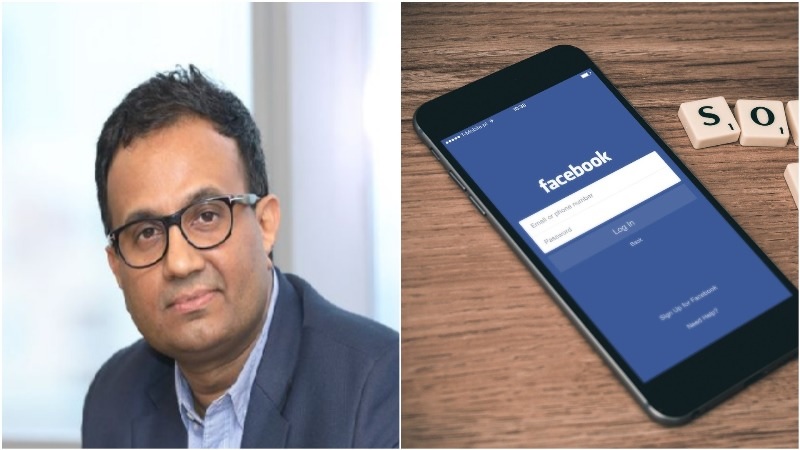 Image Courtesy:indiablooms.com
Image Courtesy:indiablooms.com
Ajit Mohan, the Vice President of Facebook India moved the Supreme Court against the notice issued by the Delhi Legislative Assembly’s Committee of Peace and Harmony. Mohan’s petition states that the Committee cannot summon him as the same issue is being considered by a Parliamentary panel as well.
The petition is likely to be heard by a bench comprising Justices SK Kaul, Aniruddha Bose and Krishna Murari on September 23.
In March, the Delhi Legislative Assembly formed the Committee of Peace and Harmony comprising 9 members in response to the riots that took place in north east Delhi in February. The Committee has been examining the role of Facebook in helping the instigation of the riots and has issued summons to the company twice.
On September 14, the Committee received a letter from Facebook India stating that it would not be answering the summons because it considered the subject matter to be “within the exclusive domain of the Union of India.”
According to Chairperson Raghav Chadha, the letter was in contempt of the Delhi Legislative Assembly as well as of the people of Delhi. He noted that many witnesses on previous proceedings had talked about Facebook’s selective action in the implementation of its community standards. Many experts have talked about Facebook’s role in the Delhi riots. Accordingly, the Committee had planned to talk to Facebook India’s Vice-President and Managing Director Ajit Mohan during the September 15 hearing.
Chadha wondered, “what kind of protection Facebook gets in the Centre’s proceedings that it prefers to be summoned by them and not by us”. Chadha also expressed surprise that Facebook had refused to attend a Committee proceeding that was completely livestreamed on social media and therefore allowed complete transparency.
The petitioner states, “when an enquiry into a subject matter over which the Legislature lacks jurisdiction extends beyond its members – whether by summoning non-members at the threat of sanctions for refusing to appear, or by directing agencies to take actions against those non-members – the matter is amenable to judicial review. Petitioners submit that those precise circumstances are present here and require this Hon’ble Court’s intervention”, as reported by LiveLaw.
The petition further states that the Committee has threatened to hold him in breach of the Committee’s privileges if he does not appear and give testimony when there is no law that empowers a State Legislature, including a committee formed by that Legislature, to take coercive action against any person unless it obstructs or impedes its legislative functions.
The petition also states the Union has exclusive jurisdiction in this matter as intermediaries like itself fall under the subject “Communication” which is a part of the Union List as per the Seventh Schedule of the Constitution.
The petitioner formulates the following questions for consideration of the Court:-
1) Whether the privileges of Respondent No. 1, the Legislative Assembly of the NCT of Delhi, include the power to compel the appearance of non-members before Respondent No. 1 to express their views or subject them to examination?
2) Whether the constitutional right to free speech and expression includes the right to silence, and whether compelling a person to speak violates the right to free speech and the right to privacy, which this Hon’ble Court recognized as a fundamental right in K.S. Puttaswamy v. Union of India, (2017) 10 SCC 1?
3) If the answer to question two is in the affirmative, whether the privileges of a State Legislature can be applied in a manner that would violate Part III of the Constitution?
4) Whether a Committee of the Legislative Assembly of the NCT of Delhi can compel witnesses to testify with respect to “public order” and “police” in the NCT of Delhi, in contravention of Articles 239 and 239AA(3)(a) of the Constitution of India, which confer the power to regulate “public order” and “police” in the NCT of Delhi exclusively with the Union of India?
5) Whether a Committee of the State Legislature can compel witnesses to testify on the issue of “communication”, which is within the exclusive jurisdiction of the Union of India (Entry 31 of List I of Seventh Schedule of the Constitution of India)?
A report by Wall Street Journal headlined “How Facebook’s Hate Speech Rules Collide With Indian Politics” that Facebook’ Chief Lobbyist in Delhi, Ankhi Das was opposed to applying the social media platform’s hate speech rules to at least one Bharatiya Janata Party (BJP) politician and other Hindu nationalist individuals and groups. “Ms. Das, whose job also includes lobbying India’s government on Facebook’s behalf, told staff members that punishing violations by politicians from Mr. Modi’s party would damage the company’s business prospects in the country…,” the report said, quoting unnamed current and former company officials.
Related:
Dear Mark Zuckerberg, time to speak up against hate speech on Facebook
Delhi violence: Facebook skips hearing before Committee on Peace and Harmony
Delhi Govt’s Committee of Peace and Harmony to examine Facebook India’s role in Delhi riots